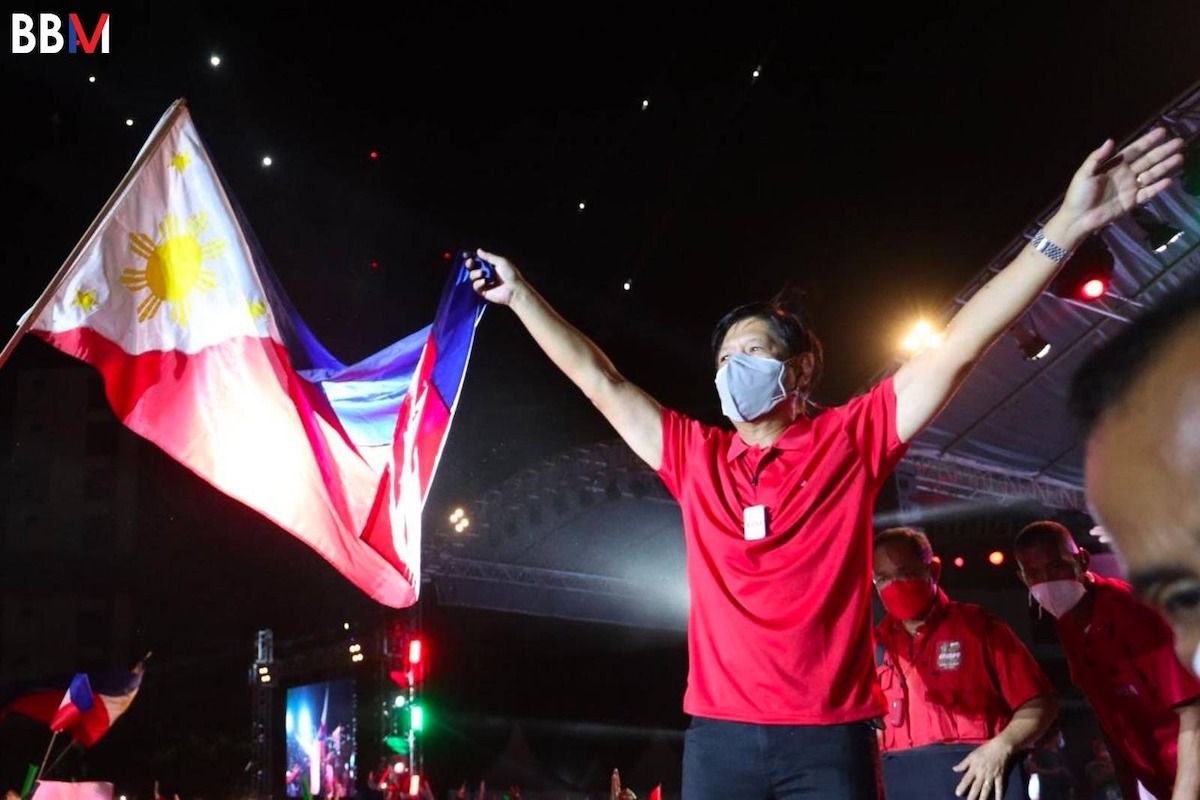Test of Philippines
In 1995, the Philippines had noticed strange Chinese military structures coming up on Mischief Reef in its Spratly Islands.
Marcos Jr. has defended his father’s legacy and steadfastly refuses to apologize for or acknowledge the atrocities and plunder during the dictatorship.

Bongbong Marcos (Photo:Twitter/@bongbongmarcos)
Quite the most critical feature of Monday’s election in the Philippines must be that the powerful alliance between the son of the late dictator Ferdinand Marcos (ousted in February 1986) and the daughter of the outgoing President, Rodrigo Duterte, is poised to govern the country for the next six years. This has emerged as an area of concern to human rights activists, not the least because the record of the government in Manila in this sphere has been rather dismal.
A former provincial governor, congressman, and senator, the 64-year-old son who goes by his childhood nickname “Bongbong” will return his family to the presidency 36 years after the “People Power” revolt ousted his father and sent him into exile for siphoning off billions and mass human rights abuses. His mother, Imelda Marcos, twice unsuccessfully attempted to retake the seat of power after returning with her children to the Philippines from exile in the United States, where her husband died in 1989.
Marcos Jr. has defended his father’s legacy and steadfastly refuses to apologize for or acknowledge the atrocities and plunder during the dictatorship. He has stayed away from controversies, including a past tax conviction and the Marcos family’s refusal to pay a huge estate tax.
Advertisement
Throughout his campaign, he tenaciously stuck to the battle cry of national unity. He denies accusations that he financed a year-long social media campaign that harnessed online trolls to smear opponents and whitewash the Marcos family’s chequered history, daring critics to “show me one.”
The other side of the electoral coin features Sara Duterte, the outgoing mayor of Davao City, which was her father’s constituency before he was elected President in 2016. A lawyer and reserve officer in the Philippine army, Duterte has carved out her own political career and, although at times supportive of her father, is considered more level-headed and pragmatic.
Her party originally wanted her to succeed him, but she chose instead to run for vice-president. She has been the long-time mayor of Davao, an economically vibrant city where the elder Duterte first carved a political name with his populist rhetoric and often bloody approach against criminality, especially trafficking and use of illegal drugs, before he rose to the presidency in 2016.
In the immediate aftermath of his stunning victory, President Ferdinand Marcos Jr. seemed eager to debunk his familial connection, often dubious. He has vowed to work for all people, urging the comity of nations to judge him by his presidency alone.
He is the first candidate in recent history to win an outright majority in a presidential election in the Philippines. “Judge me not by my ancestors, but by my actions,” he said with a rhetorical flourish. It is a victory for all Filipinos, and for democracy, he insisted. Not everyone will agree.
Advertisement